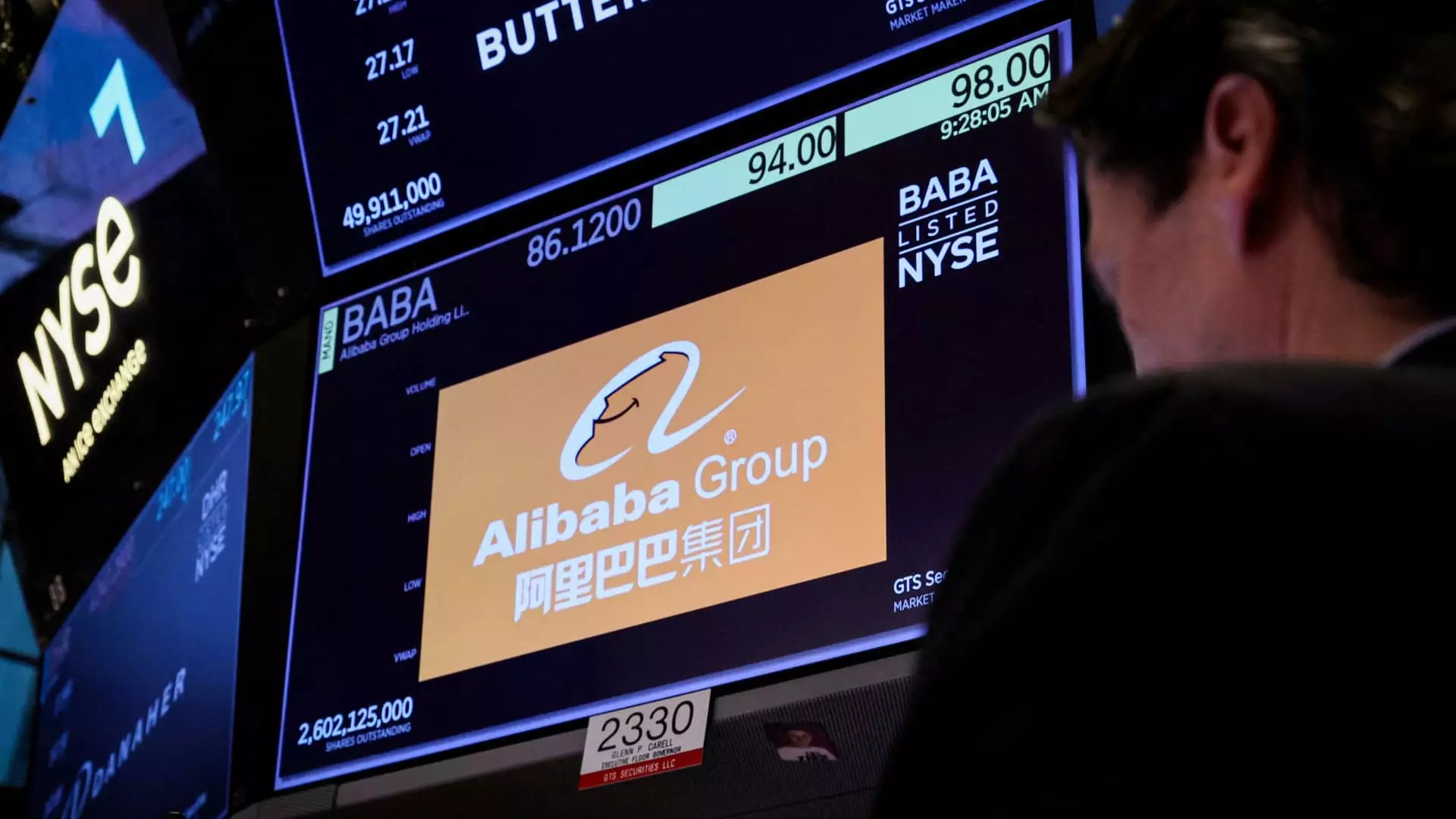In the dynamic realm of technology and finance, Alibaba Group has asserted itself prominently within the Chinese market, particularly in the bustling sector of artificial intelligence (AI). As 2025 unfolds, Alibaba has seen its U.S.-traded shares skyrocket nearly 70%, showcasing a compelling attraction for investors looking to capitalize on AI advancements. This upward trajectory is underscored by a remarkable triple-digit revenue increase in AI-related products for the sixth consecutive quarter, marking a pivotal moment in Alibaba’s recovery and reinvigoration.
The recent performance of Alibaba can be attributed to its continuous investment in AI technologies. The company’s Qwen AI model is establishing itself as a formidable competitor in the market, rivaling established players like DeepSeek. Alibaba’s aggressive expansion in the AI space is not only enhancing its product offerings but also solidifying its position in the overarching landscape of digital innovation. The recent announcement of a deal to supply AI solutions for iPhones sold in China further exemplifies Alibaba’s growing influence in the tech arena.
Moreover, the public reemergence of founder Jack Ma, who has been relatively absent from the spotlight due to political tensions, adds a layer of renewed confidence in Alibaba’s leadership and strategic direction. His attendance at a high-profile meeting with Chinese President Xi Jinping and other entrepreneurs underscores the importance of collaboration in addressing technological challenges and fostering growth.
Financial analysts are notably optimistic about Alibaba’s trajectory. Jefferies, for instance, has set a price target of $156 for Alibaba shares, indicating a potential upside from its current trading price. Meanwhile, UBS equity strategists have made a strategic shift from PDD to Alibaba in their model portfolios, citing Alibaba’s significant exposure to AI and its promising financial recovery. This shift not only reflects confidence in Alibaba’s capabilities but also highlights the competitive landscape of Chinese e-commerce, where Alibaba’s Taobao and Tmall platforms are showing resilience with a 5% increase in sales.
Despite the promising figures surrounding Alibaba’s growth, it is important to note the broader trend in the market. UBS’s crowding score indicates that, while excitement surrounding AI stocks is palpable, the rate of investment in Chinese AI-related stocks still lags behind that of their U.S. counterparts significantly. This discrepancy may raise caution among investors, suggesting that while Alibaba’s growth is impressive, it may not yet be representative of a broader market trend within China.
JPMorgan’s insights add another layer of analysis to the current competitive climate. While suggesting a wait-and-see approach before rotating from Alibaba to its AI competitors like Tencent and Baidu, JPMorgan recognizes the distinct trajectories of these companies based on their unique strengths, risks, and AI developments. Baidu’s recent announcement of a 26% increase in AI Cloud revenue underscores its growth but also highlights a tempering of exuberance given the more measured rise in its shares.
Furthermore, the caution from Morgan Stanley contrasts sharply with the optimistic outlook from other firms. Their equal-weight rating and lower price target of $100 suggest concerns regarding Alibaba’s operational costs, which have significantly increased compared to previous quarters, indicating challenges ahead in maintaining profitability. The potential strain from capital expenditures and external economic factors, such as weakened consumer spending and sluggish digital transformation efforts, presents a complex array of risks that stakeholders must consider.
As Alibaba navigates the tumultuous waters of technological advancement and market uncertainty, a balancing act lies ahead for investors and analysts alike. The company’s flourishing involvement in AI has rekindled investor interest and led to promising short-term gains. However, the mixed sentiment among analysts coupled with inherent business risks cannot be overlooked.
To fully realize its potential, Alibaba must continue to innovate and adapt within the rapidly evolving AI landscape while keeping a vigilant eye on operational efficiency and market dynamics. As Chinese enterprises brace for a tech-centric future, Alibaba’s unfolding journey will be pivotal—not just for its stakeholders but as a bellwether for the greater possibilities of AI-driven growth in the region. The coming months will likely reveal whether Alibaba can sustain its momentum or if it will encounter the hurdles that have historically challenged even the mightiest of tech giants.

